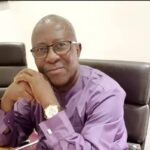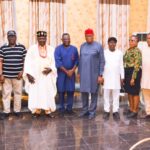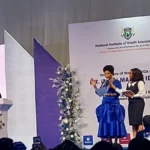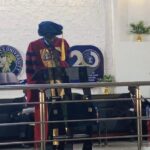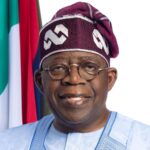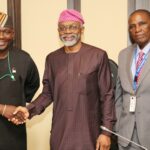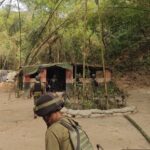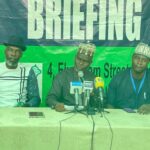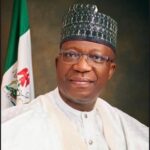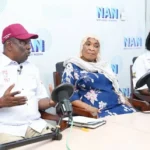By Angela Atabo
US Institute of Peace (USIP),has advocated collaborative effort towards peace building in Nigeria and equipping community members in conflict states with mediation and dialogue skills.
Dr Chris Kwaja, Interim USIP Country Director Nigeria, made this known at the Network of Nigerian Facilitators workshop themed: “Reflections and Prospects for the Future” on Thursday in Abuja”.
According to Kwaja, USIP works across the world, both with government and non governmental actors in ensuring a peaceful world, supporting conflict states by training men and women with peace building skills specifically for mediation and dialogue .
He said that USIP has worked in over 11 states in Nigeria including Kano ,Rivers ,Kaduna Plateau ,Benue ,Adamawa ,Imo ,Katsina ,Borno,Nasarawa ,Yobe among others.
” Here in Nigeria, we are involved in peace related advocacy; we support local level actors who are involved in mediation and dialogue; we support governmental institutions that are committed to working for peace.
“We are involved in the governance space, because you have a government that is committed to a peaceful society.
”Then people will be able to benefit from the dividends of democracy which has to do with the rule of law, participation of citizens, diversity, equity and inclusion.
” This is because these are some of the key drivers of disenchantment and discontent in our society, these are some of the issues we advocate for, support and pursue across the world working with research centres, civic groups at the community level.
” We build their capacities in the area of mediation and dialogue and they have been quite active in supporting our communities to identify commonalities around this whole notion of shared humanity.”
Kwaja said that the first responsibility of every government in a diverse society as Nigeria, was that the leadership must be committed to the management of diversity.
He said that the government should be true to the oath of office with a conscious effort to ensure allocation of resources is done in a way that shows equity , fairness and justice among all individuals and groups.
Kwaja said that the conference brought together men and women supprt3r by USIP across the country forefathers engagements.
” We have two cohorts of the Nigerian network of facilitators; we have trained them with peacebuilding skills specific to mediation and dialogue.
” They are able to facilitate dialogues, they are able to support communities and groups across the country to come together to work collaboratively towards a peaceful society.
“Many of them came from communities that have been in conflict, but today as a result of the kind of work they have done across those communities, these communities are peaceful today.
“These community is now value the importance of living together as people that are harmonious, not just tolerating each other, but they are living in harmony,”he said
Dr Joseph Ochogwu, Director- General of Institute for Peace and Conflict Resolution (IPCR), said that the institution’s goal was to use the non kinetic, non violent approach to resolving conflicts in Nigeria.
” I think that it is time for us to take a second look and begin to reverse the gear and re-engage a non violent, non combative approach on how we deal with our differences in the country.
“We are going to be using more of an all stakeholders engagement collaborative approach; we are going to be using issues around mediation, negotiation, and how communities need to engage themselves together.
There has been a lot of mystification of violence conflict particularly when you look at the issues of farmers herders clashes .
”They are all criminalised and these violence actors are all intertwined .
Ochogwu said:” We need to begin to unpack, to identify the challenges. Until we do that we might just be wasting so much money using the kinetic approach. We need to provide and understand through research.
”Our research will provide a pathway for these engagements for the stakeholders.
” We are engaging with both state and non-state actors at the top and at the bottom for us to achieve what we need to achieve. We are ready to engage with the new approach.”
A participant and member of the network ,Mr Ruben Buhari,said collaboration between government organisations and individuals was needed to be able to have the kind of peace that was desired in a commadded; unity.
“If we can have this training replicated in most of the conflicts hotspots that we have in this country it is going to help, especially places like Benue ,Plateau Kaduna and other Northern parts and conflict areas in Nigeria .”(NAN)(www.nannews.ng)
Edited by Bashir Rabe Mani

